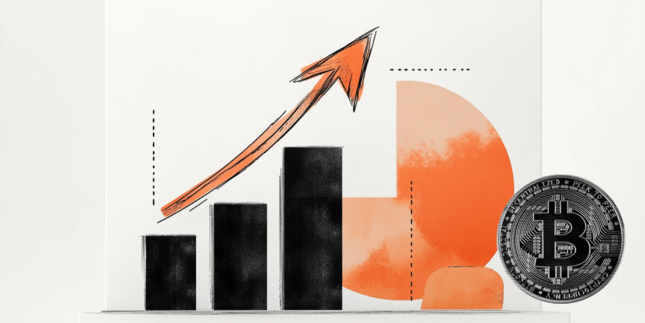The new year has gotten off to a typically volatile start in the world of cryptocurrencies, and Telegram has found itself in tonnes of trouble regarding the company’s ongoing legal drama with the United States Securities and Exchange Commission (SEC).
Telegram, founded by the Durov brothers Nikolai and Pavel, has undergone a robust expansion that has seen the company launch the Telegram Open Network (TON).
However, despite an earlier court decision allowing Telegram to continue its coin offering in light of a claim from the SEC to look at the banking records of the business, the courts have now ruled that Telegram must comply with the request.
Telegram has since agreed to cooperate and plans to release the relevant records, possibly in redacted form, by the end of January 2020. They have been given until the end of February to comply.
The legal showdown between TON and the SEC makes for compelling reading. But just how did we get here? And what does the case mean for the cryptocurrency industry as a whole? Let’s take a deeper look at how the first big crypto battle of the 21st Century is likely to pan out:
How did we get here?
Firstly, let’s take a moment to consider how we got into the predicament. The case escalated quickly in a landscape that’s still developing in a legal sense. Fundamentally, the battle between Telegram and its regulators is unprecedented - meaning that the outcome will set a new industry standard.
2019 was a tumultuous year for cryptocurrencies. After a slow opening six months, the markets went into a frenzy upon the announcement of Facebook’s stablecoin project, Libra. The excitement around Libra caused Bitcoin’s price to peak at nearly $13,000 - igniting memories of its amazing surge in late 2017.
Following on from the announcement of Libra, China’s President, Xi Jinping declared that the nation would turn its focus towards the development of blockchain technology.
The summer of 2019 saw widespread excitement for what appeared to be widespread efforts to accommodate cryptocurrencies into mainstream usage. Off the back of this momentum came TON’s opportunity to capitalise, taking the form of an open network from Telegram that’s driven by Gram - the company’s very own cryptocurrency. While many new stablecoins like Timvi (TMV), which is an algorithmic stablecoin, are based on the Ethereum blockchain, Gram is set to operate entirely on the TON network, aiming to facilitate millions of transactions per second.
However, the crypto landscape is a dynamic place, with goalposts constantly moving and momentum-shifting at the drop of a hat. True to industry form, Facebook’s Libra project soon ran into trouble, leaving TON and Gram as the frontrunners as the most exciting new kids on the block. But the SEC had other ideas.
Telegram’s missteps
Telegram’s arrival onto the crypto scene began in early 2018, with a seismic sales round amounting to $1.7bn. However, the SEC has suggested that Telegram may have acted unlawfully in circumventing the act of registering the sale of Gram tokens as a security with the regulator.
The key problem here was that Telegram filed an action known as Form D on the 17th February 2018 - an application that works by absolving companies of the necessity of registering securities with the SEC. While this form sounds like an easy way of getting away with a potentially tricky process, it brings about a new set of restrictions to businesses.
Telegram also filed an exemption that enables companies to advertise and continue to avoid SEC registration as long as its securities are sold solely to accredited investors. This exemption came under a 506(c) filing, and it looked as though TON was sailing towards its 16th October release date.
However, with less than a week to run before the TON project’s release, the SEC slapped an emergency action and restraining order on Telegram. The root cause of this measure came from the regulator seeing no restrictions in place to prohibit early investors from reselling their assets - a clear indicator, in their eyes, that Form D had been contravened.
In reaction to the SEC’s restraining order, Telegram came out fighting. The company disputed the regulator’s findings, and its investors, on the whole, agreed - foregoing their right to an initial refund and backing a delay to the issuance of Gram tokens.
The fight over bank records
January 2020 was supposed to be the eye of the storm, but despite Telegram’s hearing being scheduled for the middle of February, the company is locked in a battle to publish its bank records in order to clear itself of any perceived misconduct.
On the 13th January, the District Court of the Southern District of New York ordered Telegram to hand over its relevant papers by February 26th - however, it’s allowed to redact its pages.
Essentially, the SEC will scrutinise the available documents to ensure that Telegram took the appropriate level of care to ensure that the buyers weren’t acting as underwriters.
Telegram has promptly announced that it will be complicit in providing the bank records, which will be expected to arrive with a degree of redactions present, but unusually the order came after an initial denial of an SEC request at the very beginning of the year to access the papers.
Cryptocurrency ramifications
The SEC has escalated its battle to prevent the distribution of tokens. Speaking of the move back in October, the SEC Division of Enforcement Co-Director, Steven Peikin said: “We have repeatedly stated that issuers cannot avoid the federal securities laws just by labelling their product a cryptocurrency or a digital token. Telegram seeks to obtain the benefits of a public offering without complying with the long-established disclosure responsibilities designed to protect the investing public.”
Telegram and TON represent major prospective players in the world of cryptocurrencies and the ruling of the SEC will present a stark warning to many other potential crypto developers set for ICOs in the coming months.
2020 is set to be a big year in the cryptocurrency landscape. Although Facebook’s Libra project has lost momentum, there’s plenty of projects across the world in place looking to capitalise on the potential that digital currencies bring - particularly in developing countries.
The coming months can also pave the way for the widespread emergence of stablecoins that seek to bring an element of stability to the volatile crypto markets.
The SEC’s ruling could make the ICO process a significantly tricky one for many organisations, and may ultimately hinder the development of the market depending on the eventual outcome of its spat with TON.
However, it’s also important to note that effective regulation will be needed if cryptocurrencies are to continue the momentum they’ve collectively gathered from their 2017 emergence. TON vs the SEC could be the bout that ultimately builds more trust in the industry and encourages fresh investment.
With major governments and multinational businesses waiting eagerly for the outcome, the coming legal battle may have a seismic say in the timeframe for the eventual arrival of key players like Facebook’s embattled Libra project onto the market - and will certainly bring fresh levels of encouragement or caution depending on where we find ourselves come the end of February.
All views and opinions expressed in this article are the opinions of the author and not FXStreet. Trading cryptocurrencies or related products involves risk. This is not an endorsement to invest in or trade any of the cryptocurrencies, stocks or companies mentioned in this article.
Recommended Content
Editors’ Picks

Bitcoin could resume rally as Trump signs executive order, calls US a Crypto and AI hub
Bitcoin trades near $103,000 on Thursday, following President Donald Trump's executive order to create a Presidential Working Group on digital assets. The group will also oversee the feasibility of the US creating a national digital asset stockpile.

Ethereum recovery imminent with Etherealize launch as Pectra upgrade slated for March 11
Ethereum trades near $3,200 as positive sentiment is slowly returning into its ecosystem with the launch of Etherealize and anticipation surrounding the potential March 11 Pectra mainnet upgrade.

Dogecoin Price Forecast: Will Bitwise ETF filing drive DOGE to $1?
Dogecoin price declined 5% on Wednesday, trading as low as $0.35 on Binance. Recent movements signal a sell-the-news frenzy after a cluster of bullish catalysts emerged within the DOGE markets this week. Can bull traders hold out for an early DOGE price rebound?

Sui Price Forecast: SUI bears aiming for a 30% crash
Sui price extends its decline, trading below $4.37 on Thursday after rejecting from its ascending trendline in the previous day. Coinglass data shows that SUI’s long-to-short ratio reached the lowest level in over a month, reflecting a bearish sentiment.

Bitcoin: BTC rallies above $102,000 ahead of Trump’s inauguration
BTC's price continues to trade in the green, trading above $102,000 at the time of writing on Friday after rallying more than 7% this week. Recent US macroeconomic data released this week supported the rise of risky assets like BTC.

Trusted Broker Reviews for Smarter Trading
VERIFIED Discover in-depth reviews of reliable brokers. Compare features like spreads, leverage, and platforms. Find the perfect fit for your trading style, from CFDs to Forex pairs like EUR/USD and Gold.